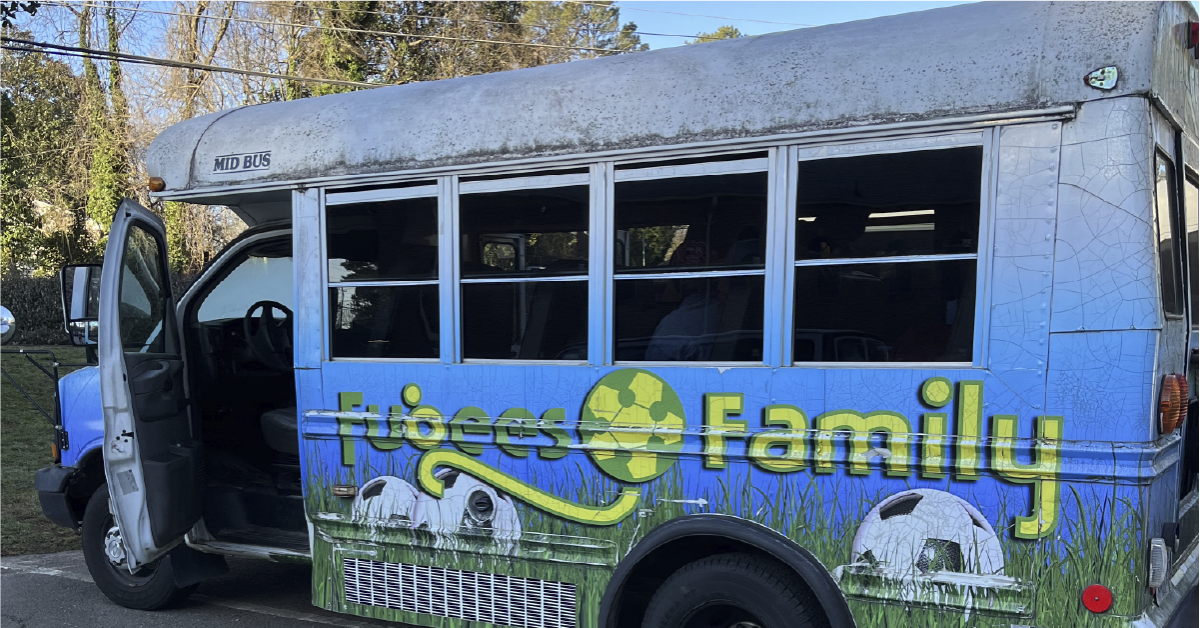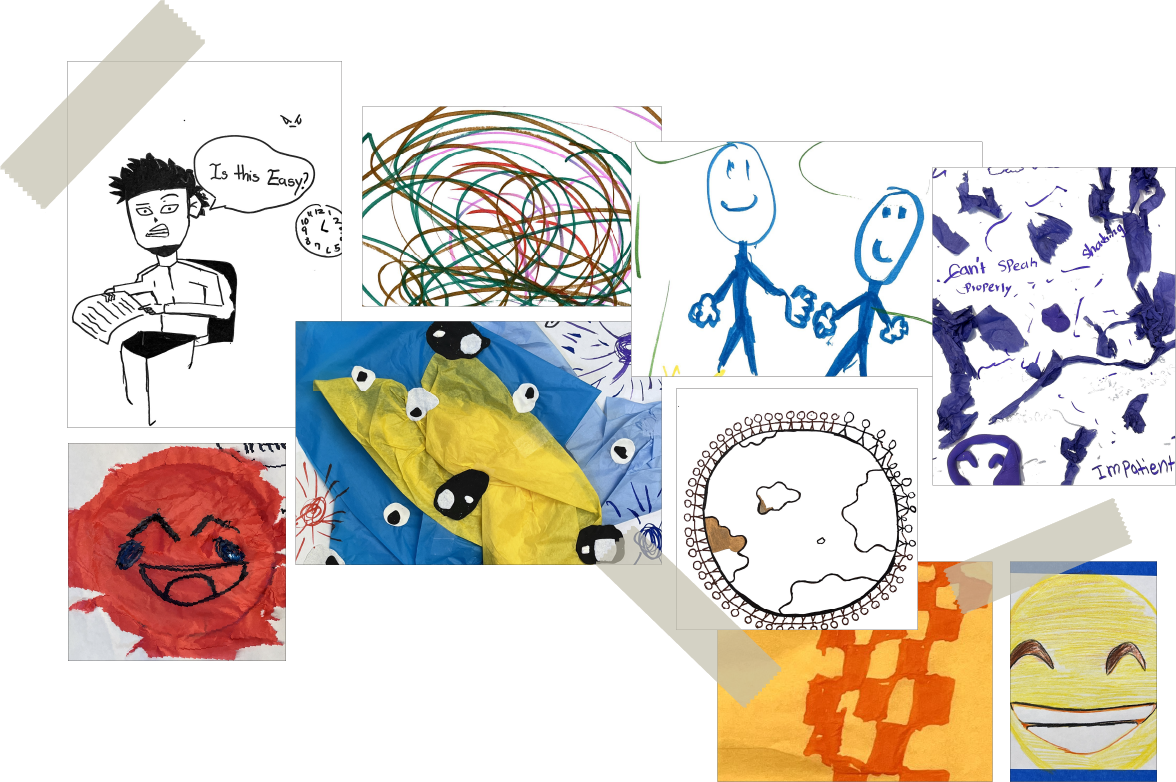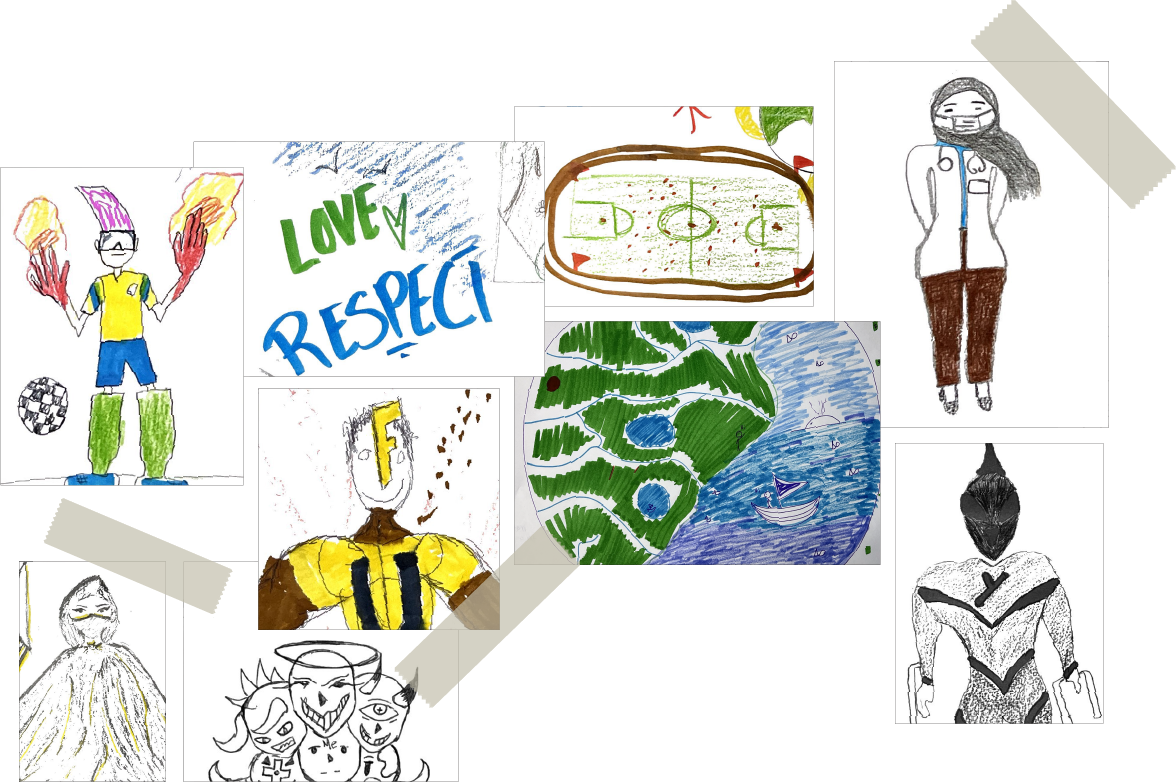
Refugee Students Use Game Design to Support Schools Welcoming Refugees
At a Game Design Studio hosted at Camp Twin Lakes with Fugees Family,Inc. refugee students dream up games that center their experiences as refugees and help school communities understand and welcome refugees.
"What do you want teachers and other students to know, feel, say, and do when they connect with refugee students?"
On the morning of Wednesday, February 10th, members of the iThrive team posed this question to a group of experts—22 high school students from Fugees Family, a community-based school designed to meet the unique academic, social, and emotional needs of refugee students acclimating to life in the United States. What followed was two and a half days of deliberation expressed in story-sharing, collaborative thinking, imaginative drawing, and play, the insights from which will inform the creation of tabletop games that communicate an answer.
In December, Luma Mufleh, founder of the Fugees Family, approached iThrive and shared her desire to co-create with Fugees Family students resources that would highlight their expertise, communicate their experiences, build empathy, and ultimately, support schools across the nation who are accepting incoming communities of refugee youth. We knew then that game design, and the cognitive process it entails, was the way to go.
"Games are a safe way to learn about something," shares Luma. "We want to create empathy, so the games' content needs to come from those with lived experience. The games have to be through the lens of those who've experienced what it's like to be a refugee and enter a new country, school system, community, and lifestyle. And that's why it is super important to bring refugee students into the design."
iThrive's Game Design Studio program offers schools and youth-serving organizations a unique design thinking and social and emotional learning experience where teens play, analyze, reflect, connect, and design games that express their ideas and prompt change in those who play them. In bringing the Game Design Studio to Fugees students, our objective was to join the Fugees Family in their commitment to amplifying the voices of refugee youth. We committed to using what their students shared to develop games that center and highlight their courage, creativity, and resilience, and humanity.
Here's a snapshot of what was surfaced, shared, and dreamt up in our time together:
DAY 1: PLAY, IDEATION, AND MOOD BOARDS
The first day of the Game Design Studio began with play. Introductions were made during an icebreaker activity where each student and staff member shared their name and a dance move that everyone else in the group repeated and mirrored. The icebreaker was followed by an opening design activity that added new layers and variations to Rock-Paper-Scissors and invited students to name and explore mechanics that can be added and taken away to games to make the play experience more collaborative and comprehensive. Reflections on the 'Rockstar' and 'Giants-Wizards-Elves' versions of the classic game led to even more ideation as students played an array of board and card games, noting each game's components and reflecting on whether or not they'd like to incorporate them in the ones they were co-creating.
In the second part of the day, students explored how design can evoke emotions that enrich a game experience with depth and intention. After being assigned an emotion card that they were asked not to show to their peers, students grabbed a piece of paper and sketched out a scene reflective of the word on the card. Once done, students posted what they created on a board and did a gallery walk, making predictions about what mood each board communicated and noting how certain colors, imagery, patterns, and dialogue spurred visceral emotional reactions.
Mood boards created by students from Fugees Family.
DAY 2: CHARACTER DESIGN, WORLD-BUILDING, AND PAPER PROTOTYPES
"What does your refugee superhero look like?"
The second day of the Fugees Family Game Design Studio kicked off with this prompt and an invitation to dream up game characters. Students thought critically about the parts of every superhero's story—their origin, transformations, life shifts, weaknesses, superpowers, and strengths—conceptualizing characters reflective of the students' own personal stories and brilliance. After drawing and documenting these characters, students were asked to draw the world that surrounds their character, one that encourages them to step into and stay in their full power.

Worlds and characters designed by students from Fugees Family.
With worlds and characters in hand, students reflected on a critical question: "If your superhero was stripped of their superpowers and taken from the world that supports their thriving and special abilities, what could empower them? What could discourage them?" Pulling from both their lived experiences and imaginations, students, working in groups, began to map out the attitudes, actions, and behaviors they associate with a genuinely welcoming environment along with the ones they see as othering and isolating. By the end of the first part of the day, together, students had created 100+ cards with insights that will be incorporated into future games and learning tools to support the work of Fugees Family.
The remainder of the day was dedicated to paper prototyping and playtesting. On a game board template, students worked in groups to assemble games that centered and used the cards they made and behaviors they mapped. In brainstorming together, students laid out their game's learning objectives, mechanics, rules, and win and loss states. The iterative process of playtesting their games with others and then fine-tuning them based on observations and feedback led to the development of five paper prototypes with components that will be incorporated into the final games.
DAY 3: PLAYTESTING, STORY-SHARING, AND LIFE MAPS
A common thread in each of the five prototypes developed by the designers on Day 2 was a desire to create a gameplay experience that helped teachers and students—refugee and non-refugee students—learn more about each other. On the morning of the last day of the Game Design Studio, students built on this throughline. Working in pairs, they drafted questions and conversation starters on index cards. Once done, they swapped decks with another team of student designers and playtested their questions, ensuring they were all accessible, welcoming, and connection-centered questions. By noon, students had compiled over 200 conversation starters that will be shared in a future game.
The last few hours at Camp Twin Lakes were full of personal stories and reflections on what refugees leave behind, what they encounter on their way to refuge, and what life is like when they arrive. After Luma shared her grandparents' story of fleeing Syria during the Assad regime, students, gathered in a circle, used it as a springboard to dig deep into their own stories and note the similarities in their experiences.
For the last design activity, students spent time outdoors sketching out a life map that outlined the emotional journey of their lives so far. These maps, along with the creations and ideas generated up until then, will inspire a suite of games for teachers and non-refugee students that will support the welcoming of refugee youth who, as one student shared, "just want to be treated as human beings." As students and staff loaded onto the Fugees Family buses and left the camp, we were all reminded of what can come from co-creation and the role it plays in imagining new solutions.
"When we desire to imagine what a better future can be and needs to be, there's no one better to imagine and co-create with than teens," shared Susan E. Rivers, Executive Director and Chief Scientist at iThrive Games. "The teens from Fugees Family are the experts and the ultimate design partners in designing the tools schools and communities need to welcome families who have been forced to flee their countries. These teen designers bravely and candidly brought their lived experiences and expertise to Game Design Studio with the goal of helping schools offer safe and supportive and empowering environments for all students, including refugees. The schools they imagine are ones where all students—refugees and non-refugees—feel cared for and respected, where shared humanity is the connective tissue."
The Fugees Family model, centered in soccer, encourages every student to work as a team member to support collective thriving and well-being on and off the field. We see the tabletop games that will be generated from this Game Design Studio session with Fugees Family students as an extension of that model. The students' genius and honesty will lead the way for better support of refugee students and help schools get better at togetherness. Sign up for our mailing list today to be one of the first people notified when the games launch.
To learn more about the Fugees Family and their mission to advance educational justice for refugee and immigrant youth, visit their website at www.fugeesfamily.org.


